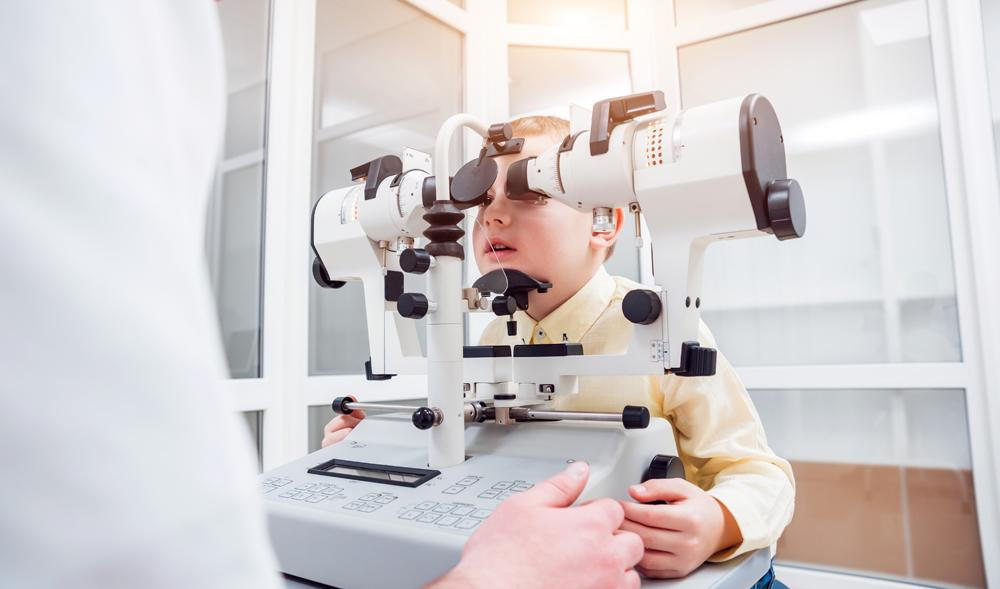Refractive Surgeries in AL: Enhance Your Vision with Expert Care
Wiki Article
Comprehending the Numerous Eye Conditions Dealt With by Specialized Eye Care Professionals
In the realm of eye treatment, specialized specialists play an important duty in diagnosing and treating a broad variety of eye problems. From common refractive mistakes that impact vision clearness to age-related conditions that position challenges as we grow older, the knowledge of these experts includes taking care of vision-threatening illness and intricate corneal conditions. The complexities of neurological eye problems existing distinct challenges that require specialized treatment. As we start this expedition of the numerous eye conditions resolved by specialized eye care specialists, it becomes evident that the complex web of ocular wellness holds a myriad of fascinating insights waiting to be revealed.Typical Refractive Errors
Refractive errors are usual aesthetic problems created by a flaw in the eye's ability to correctly focus light, resulting in blurred vision. Astigmatism is identified by an irregularly shaped cornea, resulting in distorted or obscured vision at all distances. Presbyopia is an age-related problem where the lens sheds its adaptability, making it hard to focus on close things.These refractive errors can be remedied with numerous approaches, including spectacles, get in touch with lenses, or refractive surgery. Eye treatment experts play an essential duty in diagnosing and handling refractive mistakes to assist people attain clearer vision and improve their high quality of life.
Age-Related Eye Conditions
One of the most prevalent age-related eye problems is age-related macular deterioration (AMD), an illness that causes central vision loss and can make tasks like analysis and driving challenging. Cataracts, an additional common problem among older individuals, create clouding of the eye's natural lens, leading to blurred vision. Normal eye tests with specialized eye care specialists are important for early detection and management of these age-related eye problems to protect vision and maintain ocular wellness as people expand older.Vision-Threatening Diseases
Vision-threatening conditions incorporate a variety of significant ocular problems that have the potential to substantially impact an individual's sight and total aesthetic feature. These illness position a risk of irreversible vision loss otherwise quickly identified and treated by specialized eye treatment experts. Some usual vision-threatening illness include glaucoma, diabetic person retinopathy, age-related macular degeneration (AMD), and retinal detachment.Glaucoma is a group of eye problems that damage the optic nerve, commonly as a result of high intraocular stress, causing field of vision loss and potential blindness if left unattended. Diabetic retinopathy is a problem of diabetes that impacts blood vessels in the retina, creating vision disability or loss of sight. AMD is a progressive problem influencing try this the macula, leading to central vision loss. Retinal detachment takes place when the retina divides from its underlying cells, causing unexpected vision loss that requires instant medical attention (refractive surgeries in al).
Very early detection, routine eye tests, and prompt treatment are crucial in managing vision-threatening diseases to protect sight and preserve lifestyle. Specialized eye care specialists play an essential duty in diagnosing, treating, and taking care of these problems to stop irreversible vision loss.

Corneal Disorders
Corneal disorders include a range of conditions that impact the clear content front component of the eye, understood as the cornea. Therapy for corneal problems varies depending on the certain condition but may consist of drugs, call lenses, or in serious cases, corneal transplants. Normal eye exams are vital for early detection and administration of corneal disorders to maintain basics vision and eye health and wellness.Neurological Eye Problems
Neurological eye conditions include conditions that impact the link between the eyes and the brain, affecting aesthetic processing and general eye feature. These conditions can show up in different methods, influencing vision, eye activities, and even the sychronisation between the eyes. One common neurological eye problem is optic neuritis, defined by inflammation of the optic nerve causing vision loss, shade desaturation, and discomfort with eye movement.Another substantial problem is nystagmus, where the eyes make repeated, uncontrolled movements, influencing visual acuity and deepness assumption. In addition, problems like amblyopia, usually referred to as "careless eye," arise from abnormal visual development in very early childhood, bring about decreased vision in one eye.
Neurological eye problems require specific care from professionals like neuro-ophthalmologists that have expertise in both neurology and ophthalmology. Diagnosis commonly involves a comprehensive eye assessment, imaging studies, and cooperation with neurologists to deal with the underlying neurological issues affecting the visual system. Therapy strategies can consist of medication, vision treatment, or in severe instances, medical interventions to manage these intricate conditions properly.

Conclusion
Finally, specialized eye treatment specialists deal with a variety of eye conditions, including usual refractive mistakes, age-related eye conditions, vision-threatening diseases, corneal disorders, and neurological eye conditions - refractive surgeries in al. By understanding these numerous problems and seeking appropriate therapy from eye treatment specialists, people can preserve optimal eye health and vision. It is necessary to focus on regular eye evaluations and follow advised treatment plans to maintain and secure one's vision for the futureReport this wiki page